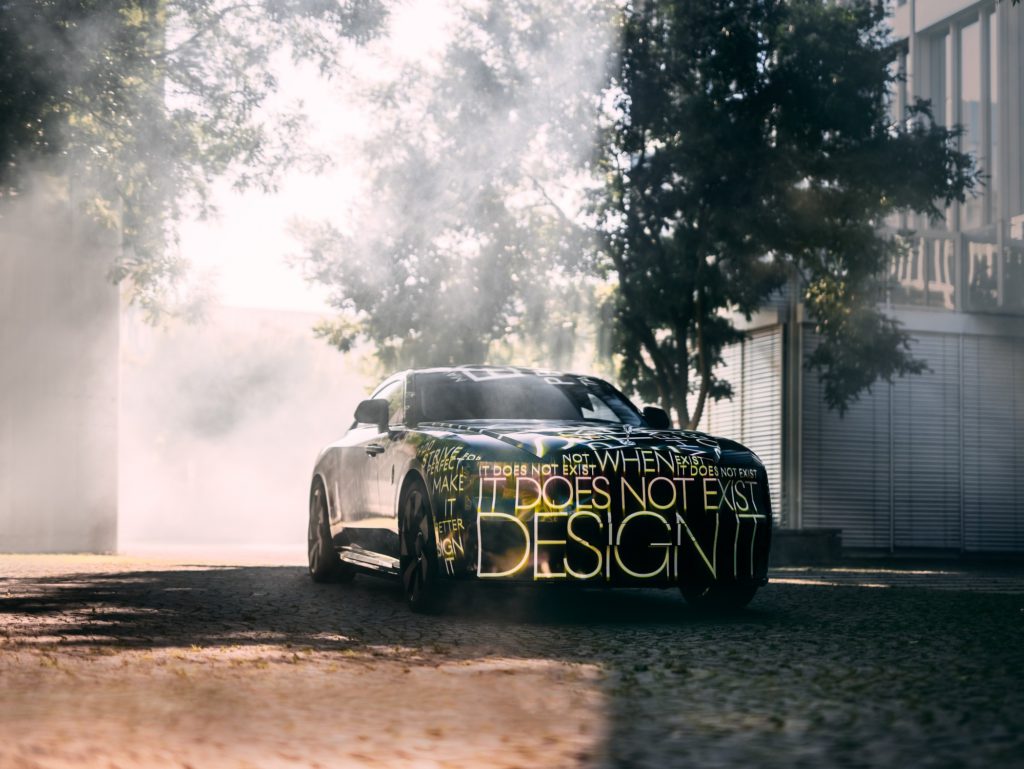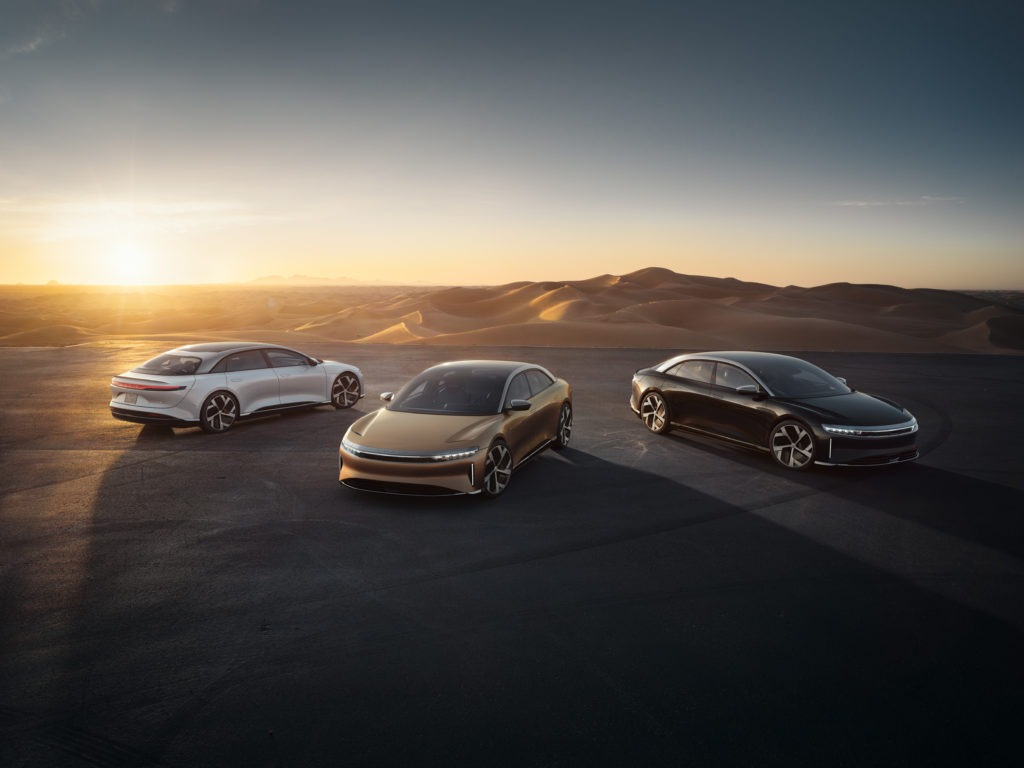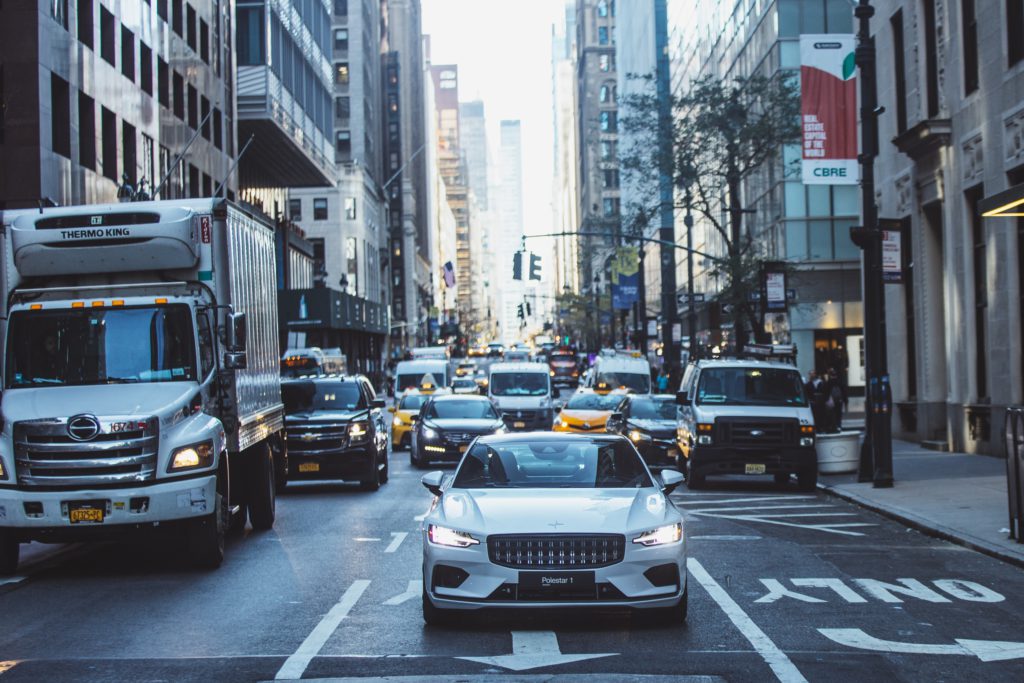Launch Report: Hyundai Bayon offers ample space in small package
08 October 2021
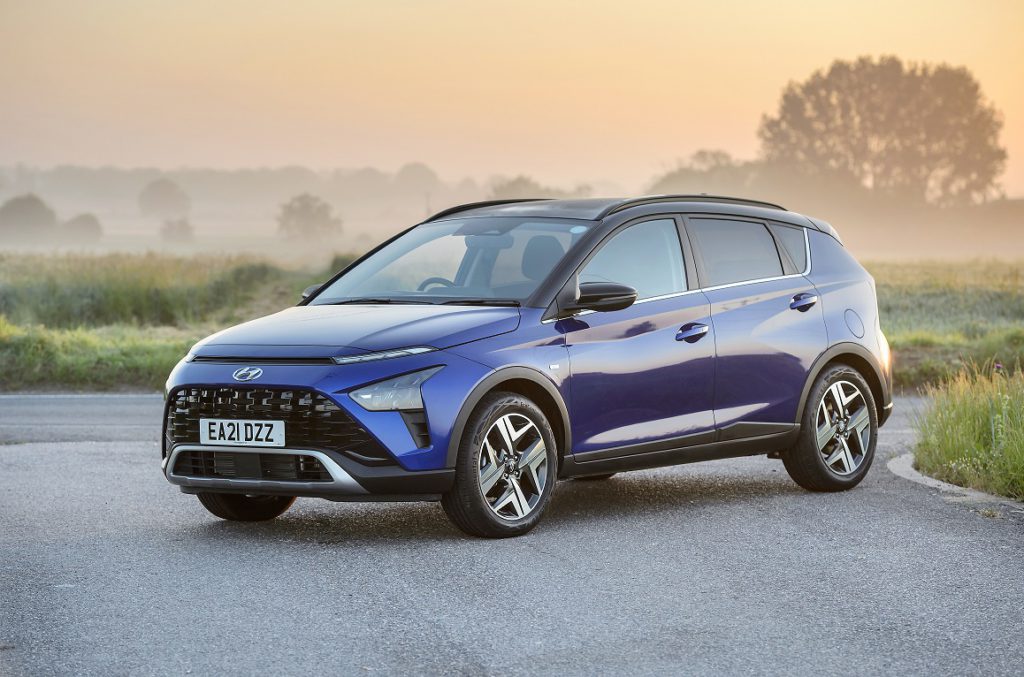
The Hyundai Bayon is the smallest SUV to date from this carmaker, making it ideally suited for everyday urban driving. However, this does not mean it is lacking in comfort. The sturdy interior has good visibility and space, particularly in the rear, where there is ample headroom, more so than in the Ford Puma or Renault Captur, for example.
The boot boasts a fair amount of capacity as well. At 411-litres, it is one of the larger contenders in the B-SUV segment. Its volume might be smaller than in the Nissan Juke and Volkswagen T-Cross, but it is larger than the comparable petrol version of the Kona. Notably, the Hyundai Bayon is not only lower than its bigger sibling, but longer too.
Continuing the comparison with the Kona’s more complex platform, the Bayon shares its technical base with the smaller i20 and is available with three different petrol engines. These range from 84 horsepower to 120 horsepower, some utilising 48-volt mild-hybrid technology. This simpler setup makes it a more affordable alternative.
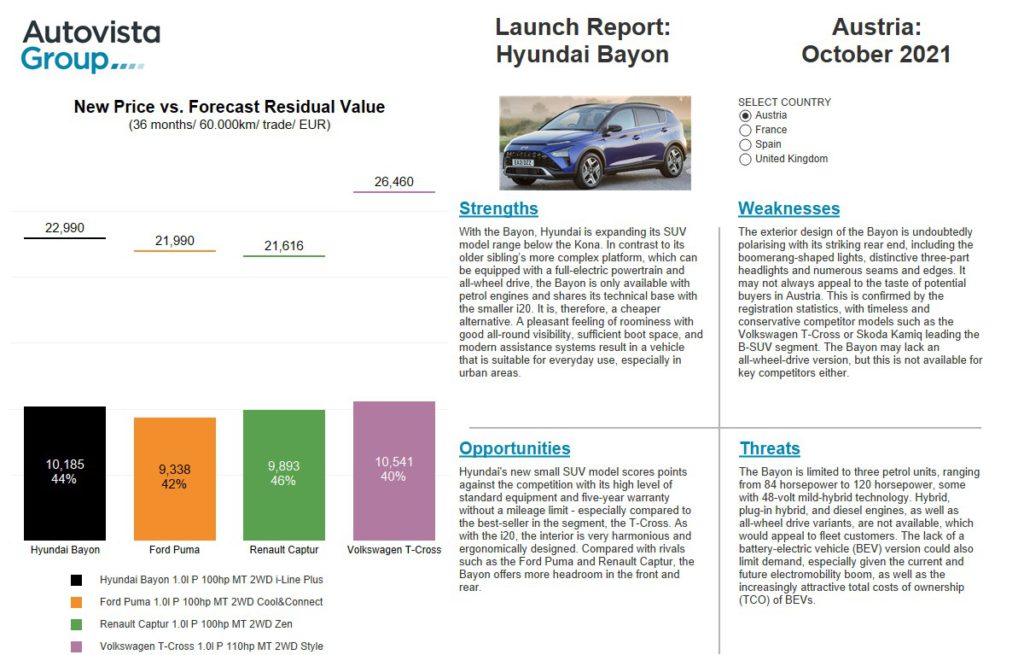
To make the Bayon stand out in the highly competitive B-SUV segment, Hyundai has given the model a striking and more eccentric appearance. This includes boomerang-shaped lights, distinctive three-part headlights and numerous seams and edges. The car’s comfortable chassis is coupled with well-calibrated suspension, providing good driving dynamics, especially in the corners, despite the firmness of the 17-inch alloy wheels.
Inside, the Bayon’s seats are large and comfortable, with good ergonomics and well-placed physical controls instead of tactile functionality. Furthermore, the central touchscreen is in an accessible position. Plus, there are no ‘piano-black’ surfaces that could suffer from scratches and fingerprints. Overall, there is decent soundproofing, despite wind noise on high-speed roads, which is often the case in urban SUVs. The price-equipment ratio is competitive, with a healthy level of equipment across all trim lines.
The B-SUV segment is very popular with private buyers and is increasingly competing with the more traditional B-segment. The Bayon’s price positioning, and in some cases its warranty offers, help to position Hyundai strategically within the B-SUV segment. The brand image of Hyundai is also improving in parts of Europe, which is having a positive impact on residual values.
View the Autovista Group dashboard, which benchmarks the Hyundai Bayon in Austria, France, Spain, and the UK for more details. The interactive launch report presents new prices, forecast RVs and SWOT (strengths, weaknesses, opportunities, and threats) analysis.
